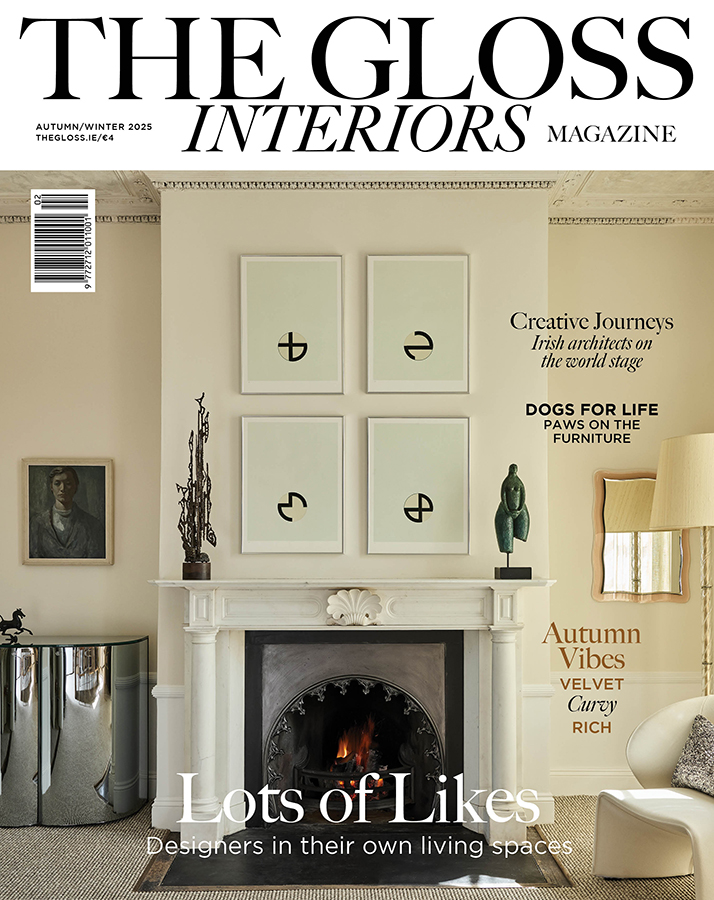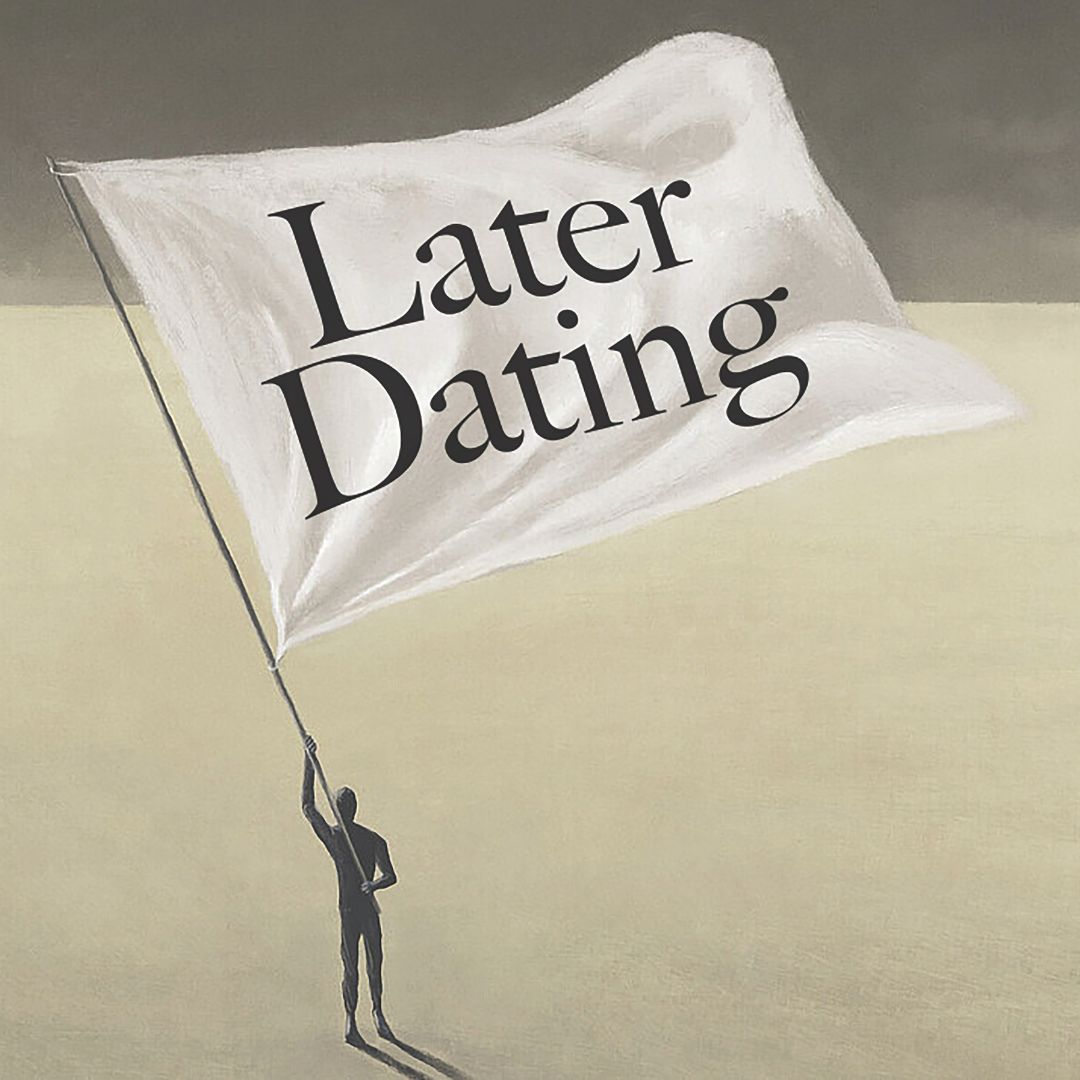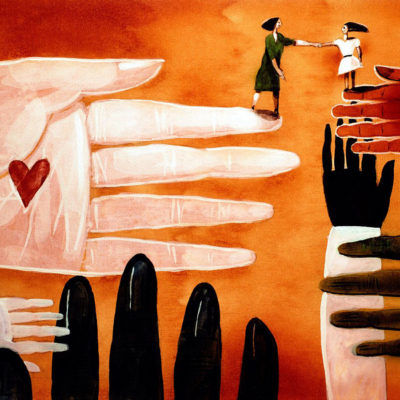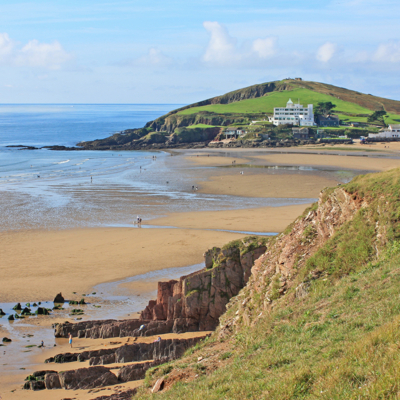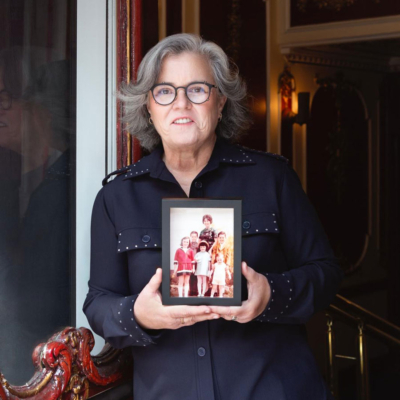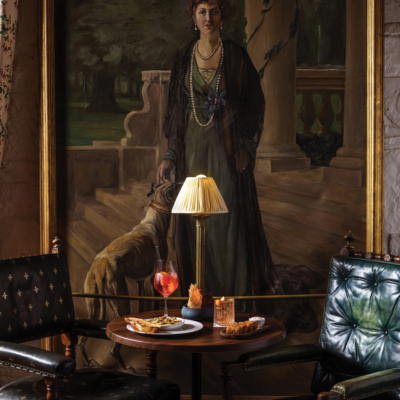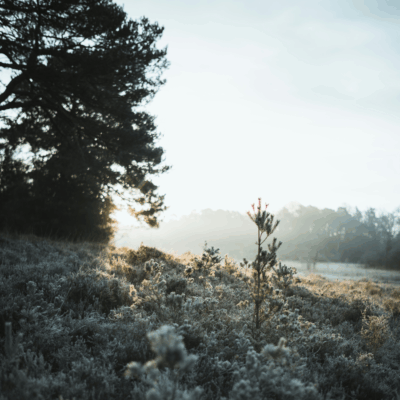Battling through the over-50s dating field, Conor Horgan reflects on red flags, green flags, and not holding up the white flag …
A recent study from Maynooth University suggests that Ireland is the loneliest country in Europe, and as more people start going into the second or even third act of their lives still or newly single, many find themselves in a world of dating unlike anything they’ve ever experienced. As someone who’s never been married and has had an on-and-off dating life well into my 50s, I thought it could be interesting to offer a long-term perspective, and from a male viewpoint. While I don’t pretend to be an expert on these things, what I do have is experience. All kinds of experience.
Dating has always been a numbers game, though the numbers don’t always look good. An applied maths student called Peter Backus recently took an equation used to estimate the number of evolved civilisations in our galaxy and adapted it to gauge how many women he might meet in London. This rapidly winnowed the five million population down to 26 women with whom he might have a wonderful relationship. Not great odds. I applied his method to Dublin (population just over one million) and using much more generous criteria (he thinks he’d only get on with ten per cent of women, my estimate is much higher) I ended up with … 21. Of course, once I subtract the number of women I’ve already dated in Dublin I end up with – well, I’m not going to tell you that, but let’s just say it’s a minus number.
It’s also a jungle out there. Which I guess makes it a numbers game in the jungle, and if that tortured mixed metaphor bothers you as much as it does me, we should probably meet for a drink sometime. One good thing about jungles is that it’s possible to have adventures in them – it’s just that you won’t know which kind.
I’ll start off with a couple of tips, based on seeing many, many profiles online. Even though I’m a professional photographer, with all of the kit and years of experience in making people look their best, the pictures on my profile that get by far the most positive responses have all been taken by (non-photographer) friends. So a picture that shows you relating to someone you like is a hundred times better than a furtive selfie, no matter how good the bathroom lighting is. And a tip for men – be kind. You are not the king of this particular jungle, and no matter how challenging the experience is for you, it’s invariably worse for women. Oh, and never send photos of parts of your anatomy – unless you’ve been asked to, in writing, at least three times.
Whenever I’ve been asked for nudes, there’s one photo I’ve always enjoyed sending. Here it is!
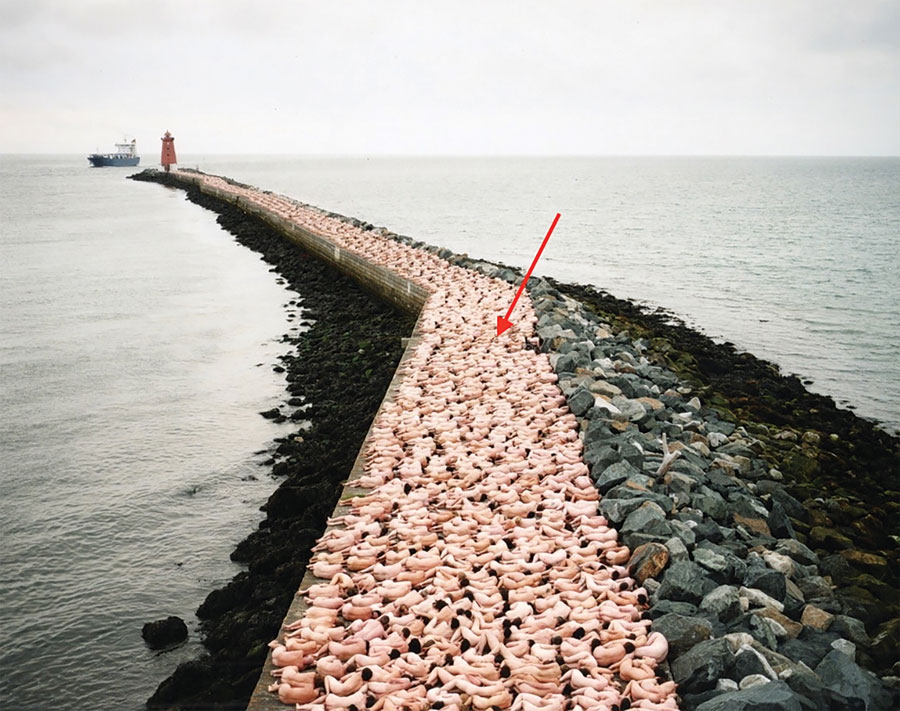
The author participating in Spencer Tunic’s art installation of 3,000 naked people on the South Wall in Dublin.
Disastrous dates are very much part of the process, and sometimes one of the few consolations after going through one is a feeling of pride for at least having tried. Another one is that I might end up with a good story for my coupled-up friends, giving them the opportunity to feel grateful they no longer have to hack their way through the dating undergrowth. I lived in Paris for a while, and went on a date with a French film director. Before we’d even mentioned the weather, she took out a small glass bottle and started spooning a syrupy liquid into her mouth. “Homeopathy?” I asked, my heart sinking a little. “No, no, not at all,” she replied, “this is a powerful sedative-hypnotic drug – if I didn’t take it I’d be hysterical right now.” For several reasons we didn’t have a second date, and when I did some research, it turned out she had been the darling of Cannes a number of years earlier for her first film which she had written, directed and starred in. It was about a young woman who starts out self-harming and ends up self-cannibalising. Not really somebody you’d like nuzzling your ear on the pillow.
Another date in Paris took a different turn. I’d matched with a lovely and interesting writer, but when we met she told me she’d just started seeing someone, so was only interested in being friends. I was disappointed, and as a consolation she invited me to join her book club. This was full of other lovely and interesting people, and we all became great friends – a definite win.
The information included on a dating profile usually isn’t enough to give any idea of what someone’s actually like. My hopes rise when I match with someone whose interests include reading, though that could mean anything from Hello! magazine to Homer in the original Greek. Sometimes very important information is omitted, as happened when I matched with a very alternative woman from Dublin. I suspected she might be a little too woo-woo for me, but thought I should remain open-minded. When we met it was a total coup de foudre, an instant mental, emotional and physical attraction. I’ve been around the block and know that these kind of fireworks tend not to be sustainable but again, I was being open-minded. Then on our second date she asked me about the pandemic, did I get jabbed, and if so how many times. Thinking this was an unusual way of describing the vaccines, I told her I’d taken every one that was offered. It turned out that much as she would’ve liked to, she believed that on health grounds she couldn’t be with anybody who had been vaccinated because they’d “shed vaccine spike proteins” onto her. I fancied I heard a distant pop as the last of the fireworks fizzled out. She didn’t agree that this was information which would have been relevant to include on her profile, and we went our separate ways.
Last year I matched with four therapists in quick succession. I really should have learned from a previous experience, when over dinner an artist with a psychology degree had forensically (and completely unethically) filleted my past until she found something she decided was one of her red flags. The first two therapists were NBNS (nice but no spark), and the third was the most hyper-vigilant person I’ve ever met, who barely glanced at me as she scanned the wine bar, looking for possible threats. Things were going swimmingly with the fourth until the date came to an abrupt end when she found out I’d once met her ex-husband in passing, 20 years ago. I mentioned all of this to my own therapist, who took a sharp breath and said “You know, Conor – therapists can be very odd people.” No kidding.
The apps aren’t designed to smooth your path towards love. Quite the opposite in fact – they work by frustrating users, mainly men, to the point that the user becomes a purchaser.
While not all that keen to date one, I know that psychologists can be very helpful, so to get an overview on the current state of dating I spoke to an expert: Dr Nicola Fox Hamilton, a cyber-psychology researcher, who specialises in online dating. I already knew that despite appearances, the apps aren’t designed to smooth your path towards finding love. Quite the opposite in fact – they work by frustrating users, mainly men, to the point that the user becomes a purchaser. And most unfortunately of all, many male users assume the female users are the cause of their frustration. She told me that while dating apps are on the decline, with more and more users reporting negative experiences, they are still by far the most-used way to meet people. I’d also seen reports saying that up to two-thirds of people on dating apps have no intention of ever meeting, using the experience as a kind of dopamine boost, but she was able to reassure me that about three-quarters of people who sign up to online dating have gone on at least one date. She added that it is still the number one way in which people find long-term relationships, and a third of marriages between 2005 and 2012 came from initial meetings online.
So if we’re stuck with the apps – did she have any tips? She said there can still be quite a stigma around online dating in Ireland, but we are slowly catching up with other cultures. Her PhD research confirmed my experience that dating profiles tend to be very shallow. She suggested that it’s much better to more specific about yourself – this makes you more different and you’ll get fewer matches, but they’ll probably be better quality ones. It’s very important to be authentic and avoid clichés, as absolutely everybody loves long walks on the beach and watching Netflix with their friends. Her attitude is that the first date should really be the final stage of the filtering process.
We discussed red and green flags – one of my red flags is people who describe themselves as having a sarcastic sense of humour, which in reality can swing from passive aggressiveness to naked hostility, always followed up with a “I’m only joking”. Another we agreed on is people who say they’re only interested in THE ONE, with whom everything will somehow be easy. I applaud the romanticism, but this is magical thinking at best and usually means the person hasn’t quite grasped just how much hard work it takes to sustain even the best relationships. I know that as a somewhat scruffy artist, entering very late early middle age, I’m a walking red flag to many people – but I also know I’m someone else’s dream date. I just have to meet them.
I mentioned the shopping lists I’ve seen, detailing the attributes people do and don’t want in a partner, and Dr Fox Hamilton was quick to point out that these tend to put people right off, adding it’s always best to be positive in your profile. A few years ago I was in a relationship with someone who had a wonderfully open-minded attitude to dating, saying the only specific things she’d been hoping for was a partner who had a similar taste in music and good stories – luckily for me I had both, and she didn’t seem to mind that I sometimes told the stories more than once.
“If you’re not interested and they don’t seem crazy, it’s best to say very clearly that you don’t think there’s any spark, and thank them for the conversation.” Dr Nicola Fox
As our conversation drew to a close, I had to ask Nicola the hardest question of all: what’s the best way to say no to someone online, especially for women? She was very clear about this, saying “If you’re not interested and they don’t seem crazy, it’s best to say very clearly that you don’t think there’s any spark, and thank them for the conversation. And then, because you never know who might kick off in a nasty way, you can block them. Nothing wrong with doing that at all.” At this point I felt I really should mention someone who’d asked her out via Twitter quite a few years ago, whom she had turned down expertly and with great kindness. She laughed and said she remembered me well, and because I’d been straightforward and honest, she’d felt she could respond honestly and without fear – it had ended up as “just a lovely interaction”. It was good to hear I’d done something right. If you just can’t be doing with dating apps, there are plenty of other ways to meet people. I’ve heard about pitching events, where one of your friends puts together a Powerpoint presentation and pitches you to a room full of singles. Sounds interesting, though a lot of hard work. There’s also gaming, which has a strong social element, and joining online communities of shared interests, which sounds more like me – something akin to a virtual hiking club, without the blisters.
Last year I signed up to the rather threateningly named TimeLeft, an app that matches you with a group of complete strangers and books a dinner together. The first one I attended had one other man (who was gay) and five disappointed-looking straight women in their early 30s. It ended up as a really enjoyable night – there can be something joyful about spending time with complete strangers, liberated in the knowledge that you’ll never see each other again. Then at a subsequent dinner I made a new friend, always a bonus.
I’ve met people online in ways other than via dating apps. One important relationship started when I began reading somebody’s blog and shortly afterwards bumped into them in the queue at Avoca Handweavers. “I think I know you,” I blurted out, “I read your blog.” She smiled back inscrutably, and later wrote a charming post about the encounter, revealing she’d been frantically thinking back through everything she’d ever written to figure out just exactly how much I did know about her. The blog was a lovely beginning to our relationship, though when we broke up a couple of years later it became a lot less lovely, at least for me. She wrote eloquently about her feelings after the breakup in what became a series of heartrending posts – they even won her an award for best personal blog. As it was my decision to end the relationship it might seem churlish of me to complain about this, but in our own ways we were both heartbroken. I certainly felt very exposed knowing that pretty much everyone in my life, including my mother, was reading her honest, hurt and extremely well-written posts. There was a hard lesson to be learned there – don’t ever look at your ex’s social media, there are so many ways in which it can make you feel worse. Or maybe the lesson is don’t go out with writers. In any case, I’m glad that blogs aren’t really a thing anymore.
Another option is placing an ad in the London Review of Books, which has a longstanding tradition of printing hilarious personals – a favourite one reads “They call me naughty Lola. Run-of-the-mill beardy physicist, M, 46.” If you prefer to advertise closer to home, Ireland’s Own magazine has a (free!) “Penpals Section”, which often includes ads from genteel octogenarians, seeking partners of 70 or over. This makes for the complete opposite to an app’s upload’n’swipe experience – the magazine cautions that it may be up to three months before the ad appears in print. It’s remarkable how the people with the least amount of actual time left seem to have the most patience.
… dating for the over-50s is pretty much the same as dating for anybody else.
If hope is fading after considering all of the above, let me share one last story. My most recent girlfriend has a younger sister who lives in rural Kerry. After resisting for a while she held her nose and signed up to Tinder, the OG of dating apps. She didn’t much enjoy the experience and only swiped right on one man. It turned out that the man she swiped on had also just joined and had also only swiped right on one person. Three years ago, we attended their blissfully happy wedding.
One of my conclusions is that dating for the over-50s is pretty much the same as dating for anybody else. Possibly the only thing us mature daters need to consider is the distant possibility that at some point over the next 20 years or so, we may start to lose our looks. One attribute that definitely comes with age is a degree of self-knowledge, an important asset in the dating world. I now know and accept the things about me that make it less likely I’ll have a conventional relationship, and more likely to have an unusual one that works really well. In this I’m with Whoopi Goldberg, who when asked if she’d like to get married again said: “And have some guy living in my house? Are you f***ing crazy?”.
When I think about heading back into the jungle, something Dr Fox Hamilton said really jumped out at me: “Dating could be so much better if we all just had a little more understanding of how difficult the experience can be, and showed a bit of grace towards each other – that would go a long way”. I think she’s just defined my favouriteever green flag. So I’ll end with this, both to myself and to anyone else out there who’d like not to be single: be graceful, and don’t give up.




